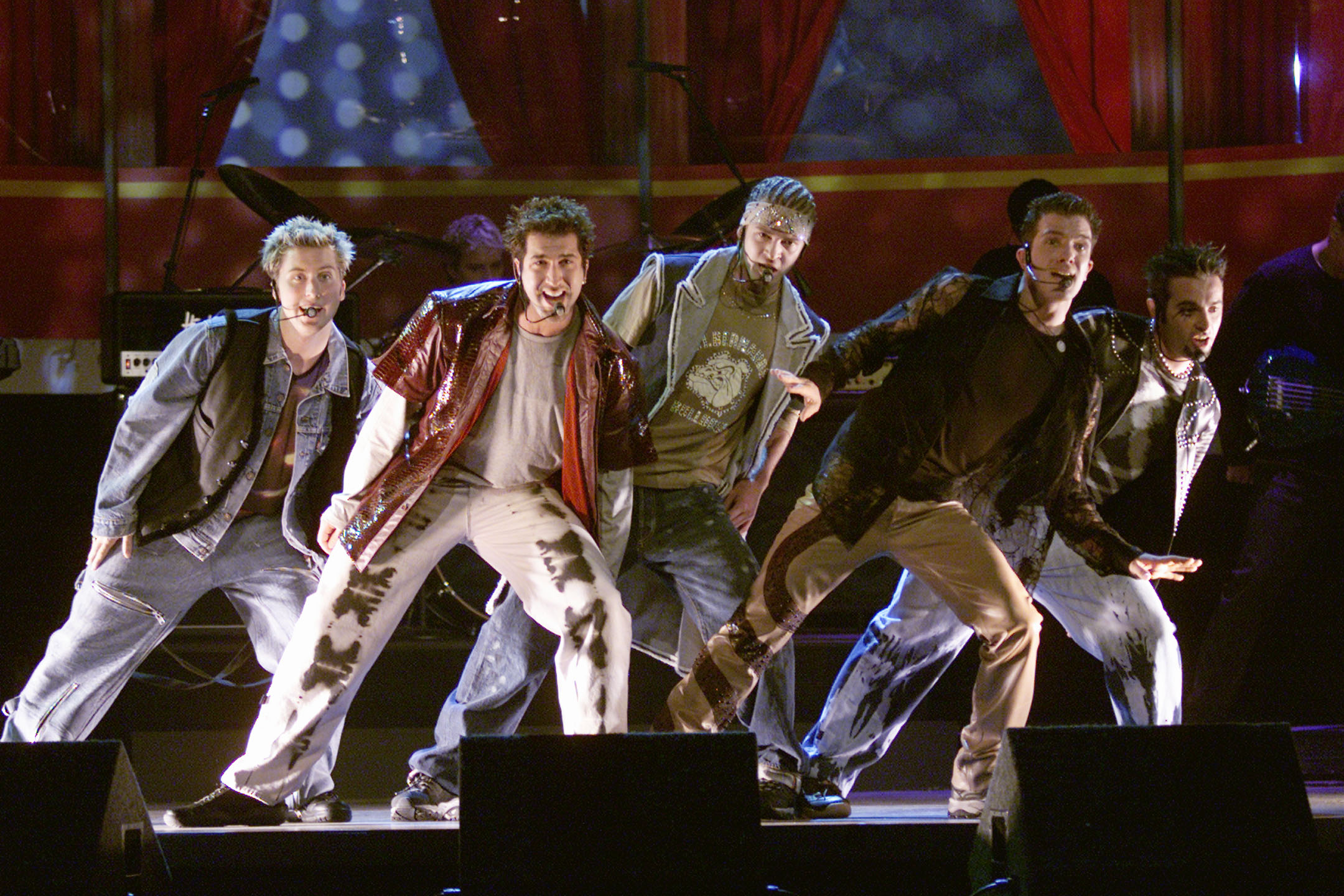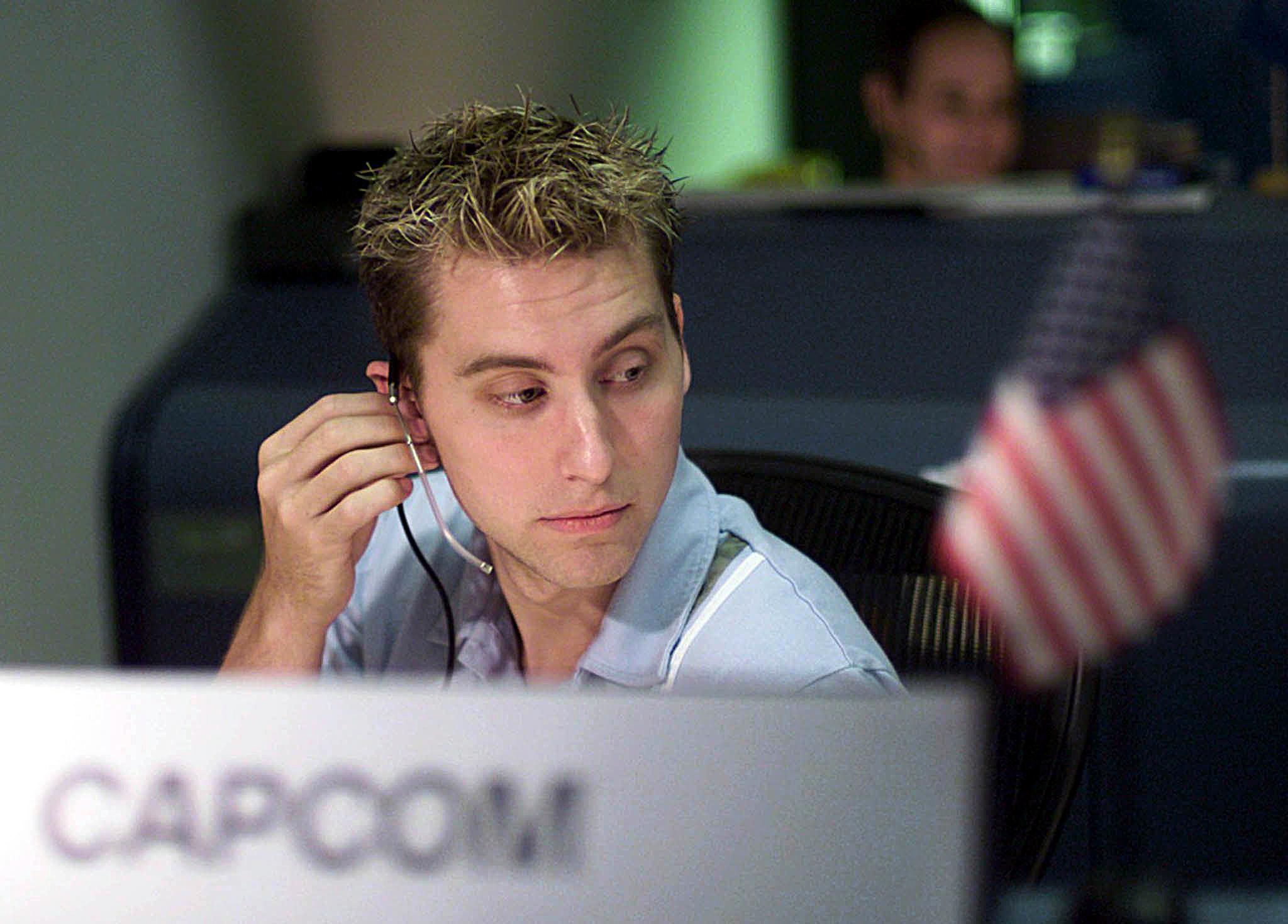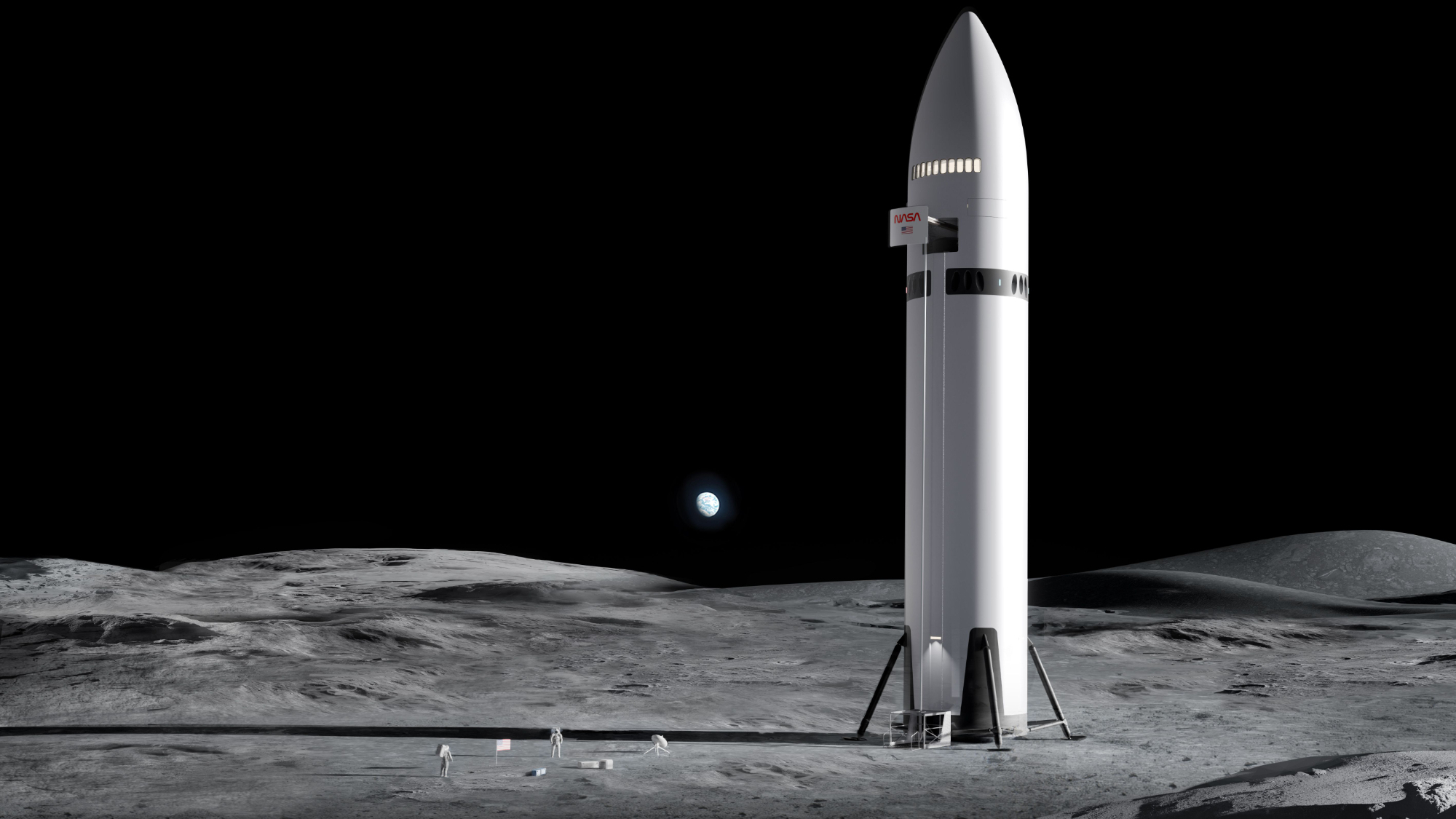Lance Bass once tried to go to space. His new podcast 'The Last Soviet' heads back with a famed cosmonaut. (exclusive video)
The former NSYNC star still wants to visit the International Space Station.
Breaking space news, the latest updates on rocket launches, skywatching events and more!
You are now subscribed
Your newsletter sign-up was successful
Want to add more newsletters?

Delivered daily
Daily Newsletter
Breaking space news, the latest updates on rocket launches, skywatching events and more!

Once a month
Watch This Space
Sign up to our monthly entertainment newsletter to keep up with all our coverage of the latest sci-fi and space movies, tv shows, games and books.

Once a week
Night Sky This Week
Discover this week's must-see night sky events, moon phases, and stunning astrophotos. Sign up for our skywatching newsletter and explore the universe with us!

Twice a month
Strange New Words
Space.com's Sci-Fi Reader's Club. Read a sci-fi short story every month and join a virtual community of fellow science fiction fans!
Lance Bass still wants to visit the International Space Station, two decades after his chance at spaceflight slipped away.
Bass, who was a member of the pop group NSYNC, had spent months in training with Russia in 2002 for a mission to the International Space Station (ISS). His $20 million seat aboard a Russian Soyuz spacecraft was purchased through Dutch-based space tourism company MirCorp and bankrolled by a documentary. But the documentary's insurance company backed out just weeks before launch, and Bass lost his seat aboard the Soyuz, he told Space.com.
"I was so very highly disappointed, but it was still amazing to be able to finish that training," said Bass, who was 23 back then and would have been the youngest person ever to fly to space. (Getting to the ISS required him to be fluent in Russian space terms and to be able to conduct himself well in an emergency, among other requirements.)
Bass is now the host of a new podcast series called "The Last Soviet," which debuted on Wednesday (Feb. 15) as a joint production between Kaleidoscope, iHeartMedia, and Samizdat. And he's still shooting for space. But a quick suborbital jaunt with Blue Origin or Virgin Galactic is not Bass' style; floating around "for a few minutes" is "not something I'd care to do," he said, as he always had more scientific aims in mind.
Related: Space Adventures Offers $15 million spacewalks for ISS visitors
Bass said he grew up watching movies like 1986's "Space Camp" and space shorts on Nickelodeon. His passion for the final frontier really took off at NASA's Kennedy Space Center at age 8 or 9, after he saw a shuttle launch in person.
Naturally, the award-winning "boy band" group NSYNC became Bass' focus after joining at age 16 in 1995. That venture set the teenager on an intense world touring schedule. NSYNC (or *NSYNC, as many fans spell it) performed at the World Series, the Olympic Games, the Super Bowl and at sold-out venues crowded with screaming young millennials.
Breaking space news, the latest updates on rocket launches, skywatching events and more!
"Oddly," Bass said of NSYNC, "that prepared me a lot for training" when the invite came to go to space. He credited the band's work ethic and intense schedule as key elements.
"You learned never to talk back, and just do what you're told ... just shut up and do it," Bass said of one "lesson learned" during his NSYNC days that helped him with Russian space training. Bass was also physically fit already, as stage performances required hours of synchronized dancing and singing with other band members.
Related: What it's like to become a NASA astronaut: 10 surprising facts
NSYNC dissolved in 2002 — shortly after the space mission fizzled, but for unrelated reasons. Bass has since moved on to other ventures. Space remains a passion, however; Bass wondered aloud if he could still convince a company to have him supervise ISS experiments on site during a future spaceflight. That does sound at least somewhat plausible, given that Houston-based company Axiom Space is starting to fly commercial astronauts for short ISS missions.
"It would just be fun to finally do an experiment up there and help the planet," said Bass. He pointed out that his original intention in flying not only was to enjoy the experience of space, but also to engage youngsters in scientific exploration.
Experiments Bass hoped to perform during the Soyuz TMA-1 mission, however, went to space without him; Russian cosmonaut Yuri Lonchakov took the empty seat and TMA-1 launched on Oct. 30, 2002 local time. In Bass' absence, the mission became a long-duration effort instead of a weeklong excursion. That put the Soyuz crew in orbit during a terrible time in space history.
TMA-1 was still aloft when NASA's space shuttle Columbia broke apart during its return to Earth on Feb. 1, 2003, killing all seven astronauts aboard. Three years of ISS staffing adjustments were required to keep the station operational as NASA readied for a safe return-to-flight process, which took two test shuttle flights and until 2006 to resolve.
Related: 20 years after Columbia shuttle tragedy, NASA pledges 'acute awareness' of astronaut safety
Bass' new podcast series centers on cosmonaut Sergei Krikalev, who was temporarily stranded on the Mir space station on Dec. 26, 1991 as the Soviet Union dissolved underneath him. Krikalev's landing site was supposed to be the newly independent Kazakhstan, so it took months of negotiations to bring him back to Earth there. Krikalev returned on March 25, 1992 after 311 days in space — double his originally planned off-Earth stay.
The podcast will discuss some of the politics that went on during that space mission, along with Krikalev's unique orbital experiences, Bass said. For example, Krikalev spoke with numerous HAM radio enthusiasts around the world, including Australia's Margaret Iaquinto. The miniseries may also touch on Krikalev's other space sorties on Soyuz, on the space shuttle and as part of two long-duration ISS missions.
Krikalev is now executive director of human spaceflight programs at the Russian space agency Roscosmos, making him one of the top officials responsible for Soyuz flights. There have been some big changes in the past year: Russia has announced its intention to leave the ISS partnership sometime after 2024 in the wake of the country's internationally condemned invasion of Ukraine on Feb. 24, 2022 that ruptured many of its space partnerships.
Related: How seriously should we take Russia's latest threat to leave the ISS?
Two Russian spacecraft, a crew-carrying Soyuz and a robotic Progress freighter, also both leaked coolant in recent weeks. The Soyuz is a particularly troublesome issue, as three people on the ISS were supposed to use it to go back home. Roscosmos plans to launch a new Soyuz to replace the broken one, but timing has been delayed a month to March while the Progress investigation continues. In the meantime, the contingency plan in case of ISS emergency is for only two people to use the leaky Soyuz and the last to squeeze into SpaceX's Crew Dragon alongside four other astronauts.
Bass said the crews have trained for emergency scenarios, so they should be ready to go no matter what ensues. But as far as the Russians moving away from ISS, "I hope that doesn't happen," he said, "because the one thing that I love about space is it's what brings all the countries together. That was the beautiful thing about the ISS, bringing everyone together, because space is for everyone."
A few space tourists to the ISS have flown since Bass' efforts, and in 2022 former NASA deputy chief Lori Garver released a memoir talking about her experiences training alongside the NSYNC star. Garver, a consultant while she was in training for her flight, said her bid to space was ultimately turned down in favor of Bass; she ultimately never made it to orbit, either.
The latest group of ISS "tourists" in December 2021 was a duo: Japanese billionaire Yusaku Maezawa, who also paid for a seat for Yozo Hirano. Maezawa is now planning to fly himself and eight artists around the moon on a mission called dearMoon, which has no launch date attached as it awaits readiness of SpaceX's giant, next-generation Starship vehicle.
You can listen to Bass' podcast on all major platforms; he shared no plans for future seasons, saying he is still focusing on recording the last two episodes in this season before deciding on what to do next.
Editor's note: This story was updated at 10 am to include that The Last Soviet was produced jointly with Kaleidoscope, iHeartMedia, and Samizdat.
Elizabeth Howell is the co-author of "Why Am I Taller?" (ECW Press, 2022; with Canadian astronaut Dave Williams), a book about space medicine. Follow her on Twitter @howellspace. Follow us on Twitter @Spacedotcom or Facebook.

Elizabeth Howell (she/her), Ph.D., was a staff writer in the spaceflight channel between 2022 and 2024 specializing in Canadian space news. She was contributing writer for Space.com for 10 years from 2012 to 2024. Elizabeth's reporting includes multiple exclusives with the White House, leading world coverage about a lost-and-found space tomato on the International Space Station, witnessing five human spaceflight launches on two continents, flying parabolic, working inside a spacesuit, and participating in a simulated Mars mission. Her latest book, "Why Am I Taller?" (ECW Press, 2022) is co-written with astronaut Dave Williams.




